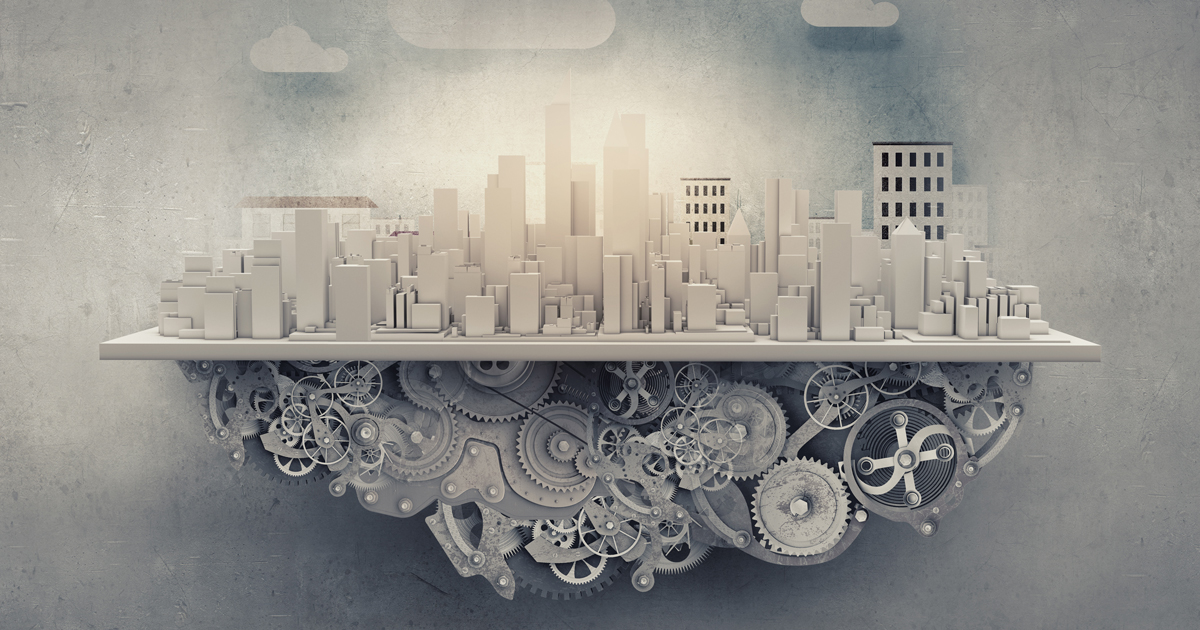I am, and shall always remain, a city boy. However much I love the peace, simplicity and endless rainfall of the Devon countryside, I feel most alive surround by buildings, traffic, sirens and people.
This is surprising because I’m not an especially sociable person, and I am only rarely involved in the sorts of things that cause sirens or contain lots of people, but I think it’s the feeling of being a small part of something much larger than myself; to feel a small gear in the great whirring mechanism of humanity.
Of course, that doesn’t necessarily mean the larger machine is doing good work – to paraphrase the sadly missed Terry Pratchett:
“There are a hundred thousand souls in the big city… and ten times that number of actual people.”
Why would you?
Practice, particularly general practice, is hard. Given the long hours, the mentally and occasionally physically taxing nature of the job and, in particular, the emotional strains of worrying about making mistakes, dealing with them when you do, watching patients die despite your best efforts, performing euthanasia, and dealing with clients and their manifold variety of challenging social and financial situations, you could be forgiven for wondering why anyone does it at all.
Certainly, I never found it as rewarding as I was expecting. Many of us are far better at dwelling on our mistakes than celebrating our victories; we find it very easy to believe our patients would have got better despite our efforts whereas, when we make mistakes, we’re the only person on the planet who could have got something so utterly, terribly wrong.
Shades of grey
It’s worryingly easy to get into a negative spiral. Except… just occasionally, there is something to be said for all the emotions we deal with.
We live in a morally grey world full of good intentions, selfishness and unintended consequences. It’s rare truly good acts are reported to us in the media and we’re used to the idea we’re all just trying to get through the day, rather than trying to make the world a better place.
It’s easy to think there’s nothing good in the world. Sometimes, however, there are situations in practice where you just know you’ve done a good thing – an unequivocally good thing – and that no-one can take it away from you.
Big things, small things
It can be huge – like a stressful, but life-saving operation that actually works even when you thought it wouldn’t – or a medical treatment that works because you approached the situation logically and the disease had actually read the same textbooks you had. Or it can be small, like a piece of advice that saved a trip to the vets.
However, it’s not always about success – sometimes you’re the one who’s there when people’s worst fears about their companions are confirmed, and your words and your manner make the unbearable that little bit easier to accept. Sometimes, within the limits we work under, you bend the rules, buck the system and help someone in a way they weren’t expecting, or help to rescue an animal that had no hope of being rescued.
An almost religious experience
It doesn’t happen often, because life is messy and busy and challenging, but the nature of the job is that sometimes you are the right person in the right place to make a real difference to an animals or an owner’s life – and when those stars align, that’s when you get your reward.
For me, at least, it was never a huge explosion of excitement and happiness, it was a buzz – a quiet sensation deep inside. It was, peculiarly enough, the same kind of sensation I get from being in a city: a feeling that I was connected to something larger, and in this case better, than myself.
I’m not sure quite why it manifests as that feeling (certainly, I am not a religious man), but I wonder if the feeling is where at least some of the ideas behind religion originated. It’s not a loud feeling, but it’s the one that made it all worthwhile for me – and, I suspect, for many practitioners, as well as other people in vocational jobs.

The benefits of altruism
I am unsure why helping others should produce such a feeling in humans. I suspect it’s an evolutionary reward to encourage altruism as a proven survival trait, but I’m glad we experience it because, as bad as it is, humanity could be so much worse without it.
Sometimes that feeling was strong enough to get me through the weeks and make it all worthwhile. Often, it wasn’t. And, ultimately, it wasn’t enough to stop me leaving…
I haven’t worked in general practice for nearly four years now, and while there’s much about it I’m very glad I will never experience again, I am surprised to find that, as the months pass, there are parts of the job I miss greatly – surprising and weird parts, like the smell of different dogs’ ears, surgical spirit or hibiscrub, the closeness with clients after a shared midnight trauma, the thrill of surgery… and ‘the buzz’.
Virtually buzz-less
I work as a clinical pathologist nowadays, and, in many ways, I have never been happier or felt more professionally fulfilled.
On an abstract level, I know I’m helping with my reports and my opinions, but I very rarely get the buzz any more – the quiet feeling that, despite all the blood, sweat and tears, I was making the world a slightly better place.
There are, of course, ways to get that feeling outside of work, but I’m saddened to find myself a fundamentally lazy person not given to great acts of generosity or charity unless forced into it – and I seldom put myself in a position to do that nowadays. I’d far rather play games.
I know it’s better to light a candle than to curse the darkness, but cursing the darkness is so much more fun.
Finding meaning
Much as I miss the buzz of the city, I miss the buzz of worthiness – of having a life worthwhile of the remarkable good fortune that has put me in this body, in this century, in this place.
Some people get the buzz from their work, some people get it from religion, some people get it just from being good people.
I am a long way from the latter two, and I wonder if I will ever really feel the buzz again.

Leave a Reply